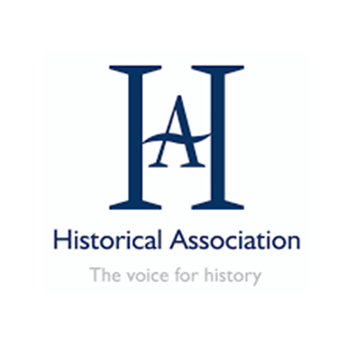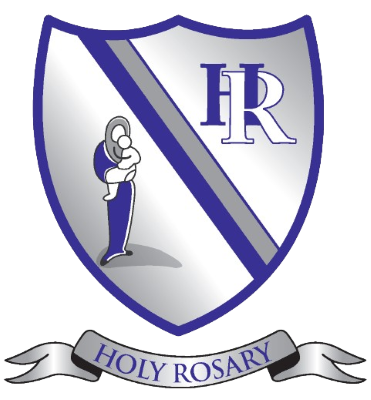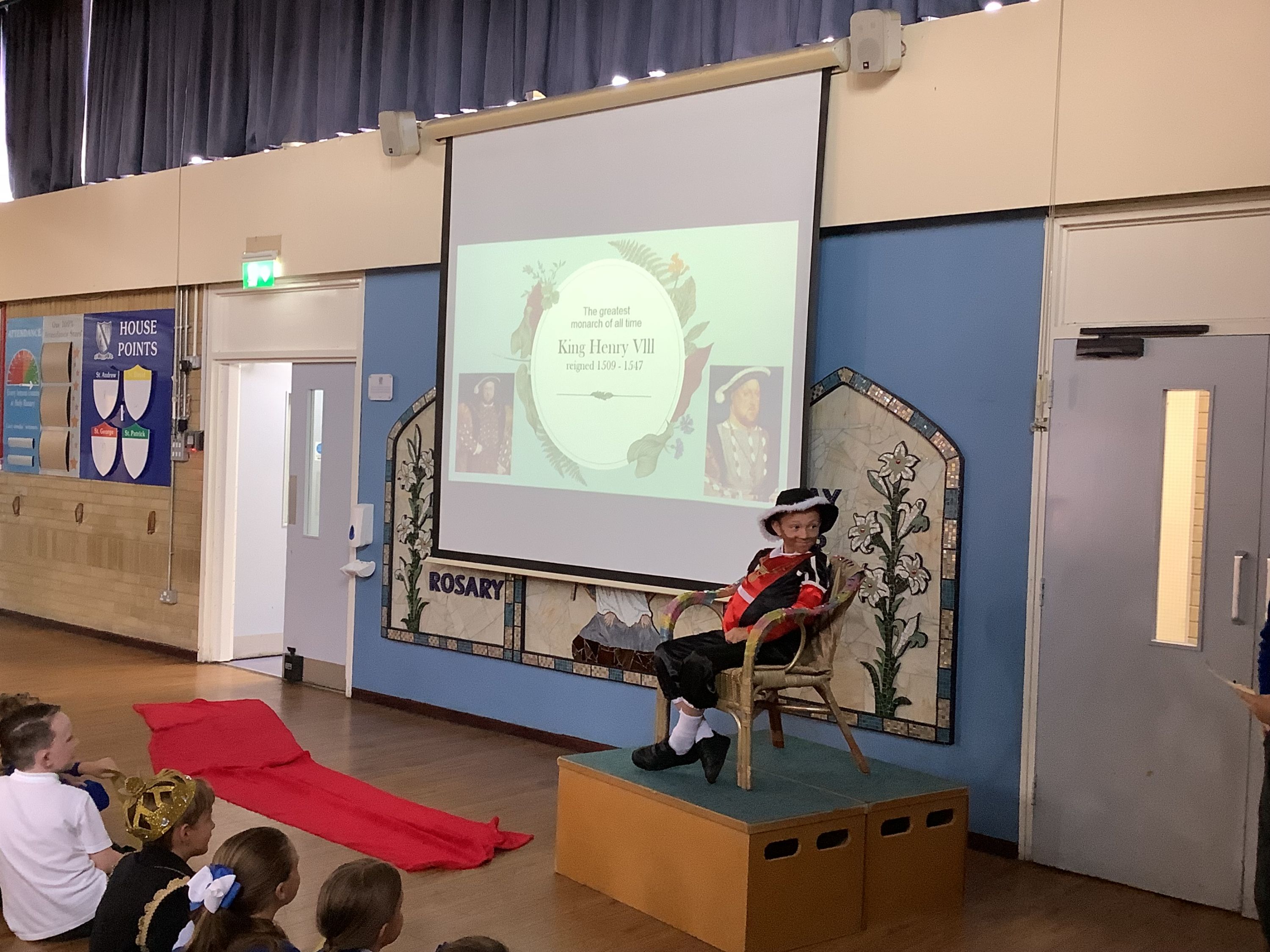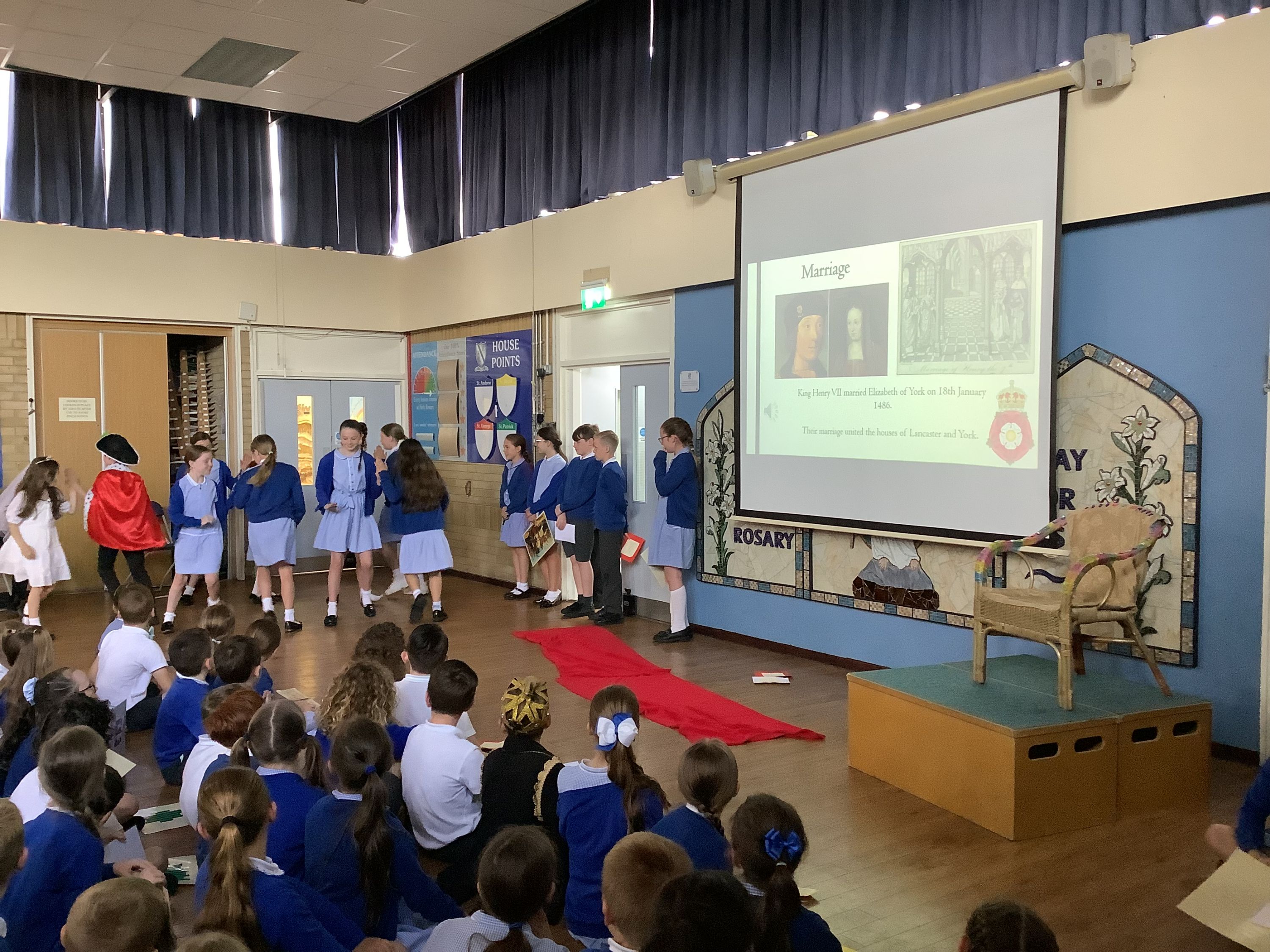History
Our Curriculum
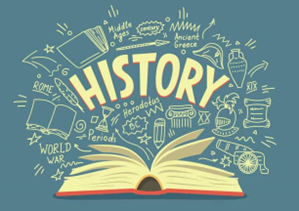
“The more you know about the past, the better prepared you are for the future.’
-Theodore Roosevelt
Intent
The study of history at Holy Rosary Primary School ignites children’s curiosity about the past in Britain and the wider world. History enables children to develop a context for their growing sense of identity and a chronological framework for their knowledge of significant events and people. We want to foster a love of history in which children are encouraged to ask perceptive questions, think critically, weigh evidence, sift arguments, and develop perspective and judgement. History is all around us and Liverpool is a city with an abundance of rich, historical heritage for children to discover. We encourage all pupils, regardless of ability, to develop, strengthen and expand upon their cultural capital. Through finding out about how and why the world, our country, culture and local community have developed over time, children understand how the past influences the present.
Implementation
- Through our history curriculum, units are appropriately sequenced and required learning is explicit.
- History is taught in half-termly units so that the children achieve depth in their learning.
- In planning our curriculum, we have taken into account current research into the knowledge based curriculum and cognitive learning. In Nursery and Reception, we follow the EYFS areas of learning. Our KS1 & 2 curriculum is built on the National Curriculum Programmes of study for each subject area.
- Key knowledge and skills that children acquire and develop throughout each unit have been carefully mapped by staff to ensure progression between year groups throughout the school.
- Metacognitive approaches to learning underpin the entire curriculum in order to ensure that all children are able to learn more and remember more.
- History topics are not taught in isolation; children are encouraged to revisit and make links between previous units to strengthen their previous learning. We help pupils to develop a ‘mental timeline’ in order to do this.
- All learning will start by revisiting prior knowledge. At the start of each topic, children will review previous learning by completing a KWL grid and children will have the opportunity to add their newly acquired knowledge to their grid and share what they know about a current topic.
- Staff will model explicitly the subject-specific vocabulary, knowledge and skills relevant to the learning to allow them to integrate new knowledge into larger concepts.
- Learning will be supported through the use of knowledge organisers; they will be used for pre-teaching and a reference point for children to review their learning. Staff have access to prior learning maps to identify what the children should already know about each topic.
- Cross curricular outcomes in history are specifically planned for, with strong links between the history curriculum and English lessons enabling further contextual learning.
- The local area will be fully utilised with opportunities for learning outside the classroom.
- Summative assessment is completed at the end of each topic where history objectives have been covered; an objective tracker is used to inform leaders of school improvements or skills that need to be further enhanced.
Impact
By the end of Year 6 at Holy Rosary Primary School, children will have a chronological understanding of British History from the Stone Age to the present day. Children will become increasingly aware of how historical events have shaped the world that they currently live in, and they will also have a further understanding of history on a local level. The impact and measure of our history curriculum is to ensure that pupils are equipped with historical knowledge and skills that will enable them to be ready for the curriculum at Key Stage 3 and for life as an adult in the wider world.
We want our children to have thoroughly enjoyed learning about history, therefore encouraging them to undertake new life experiences now and in the future. Outcomes in topic and English books, evidence a broad and balanced history curriculum and demonstrate the children’s acquisition of identified key knowledge.
Children record what they have learned comparative to their starting points each lesson and at the end of every topic. Our children will think critically, evaluate evidence and develop their own perspectives and judgements as they progress as learners.

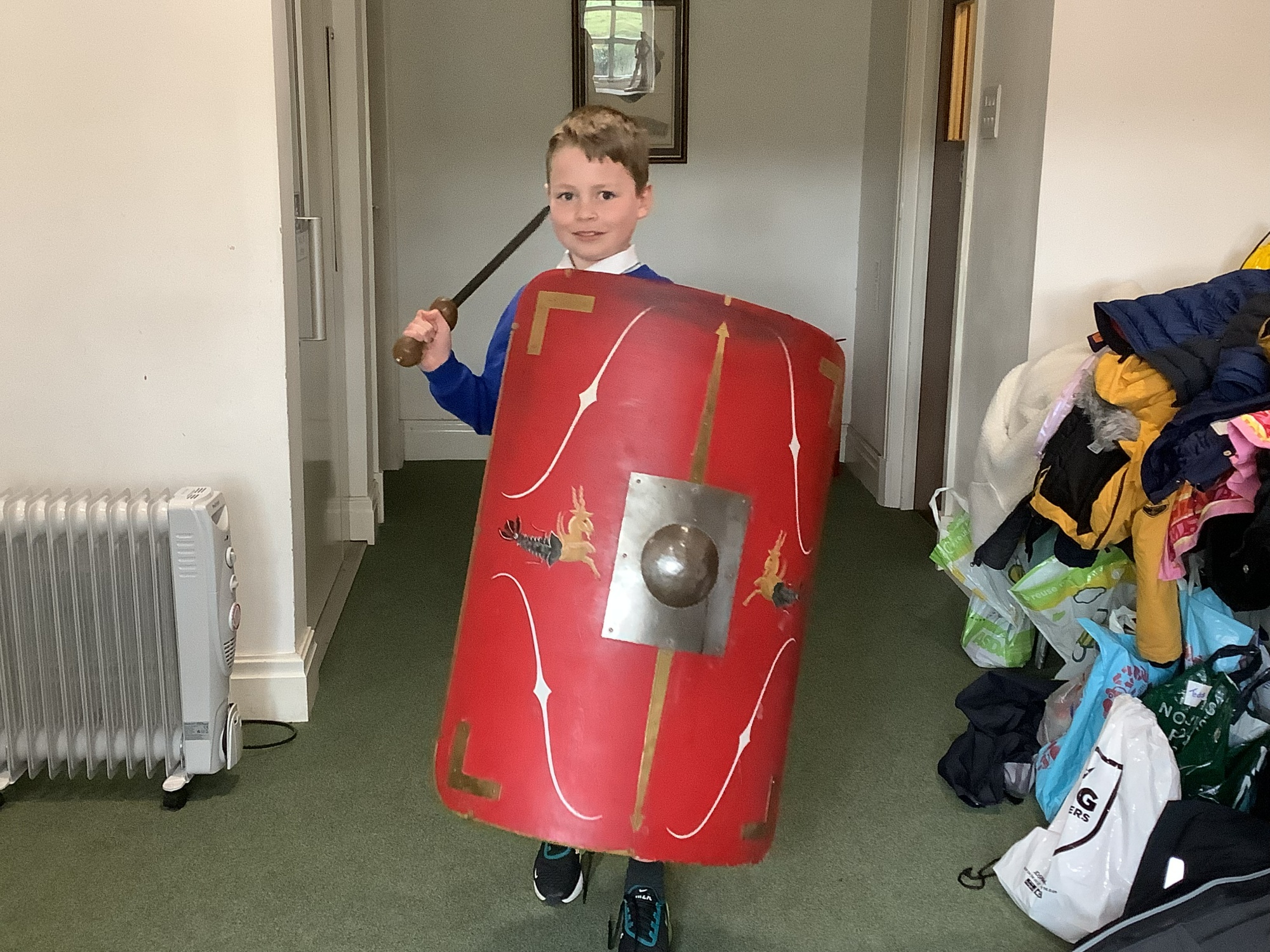
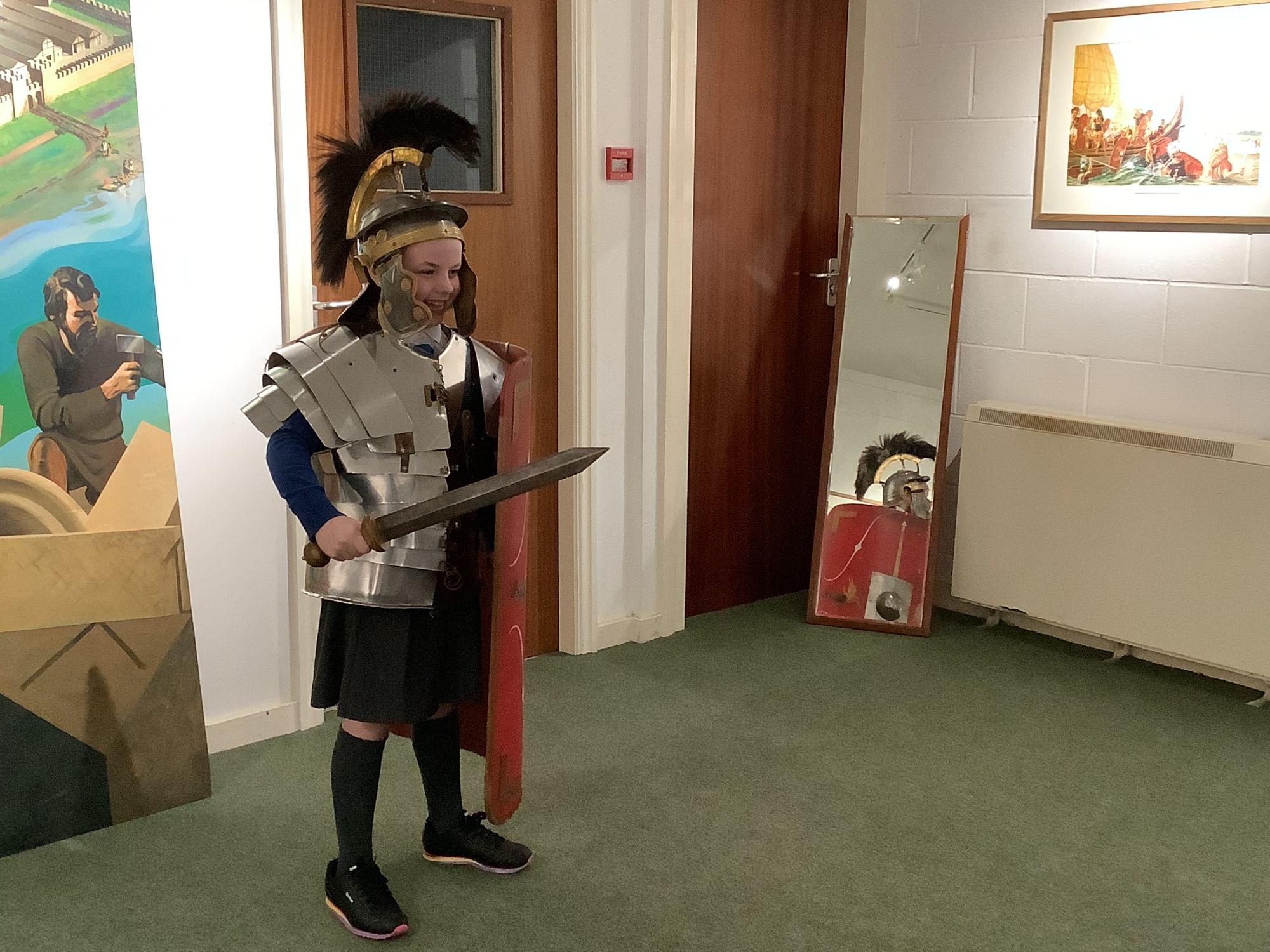
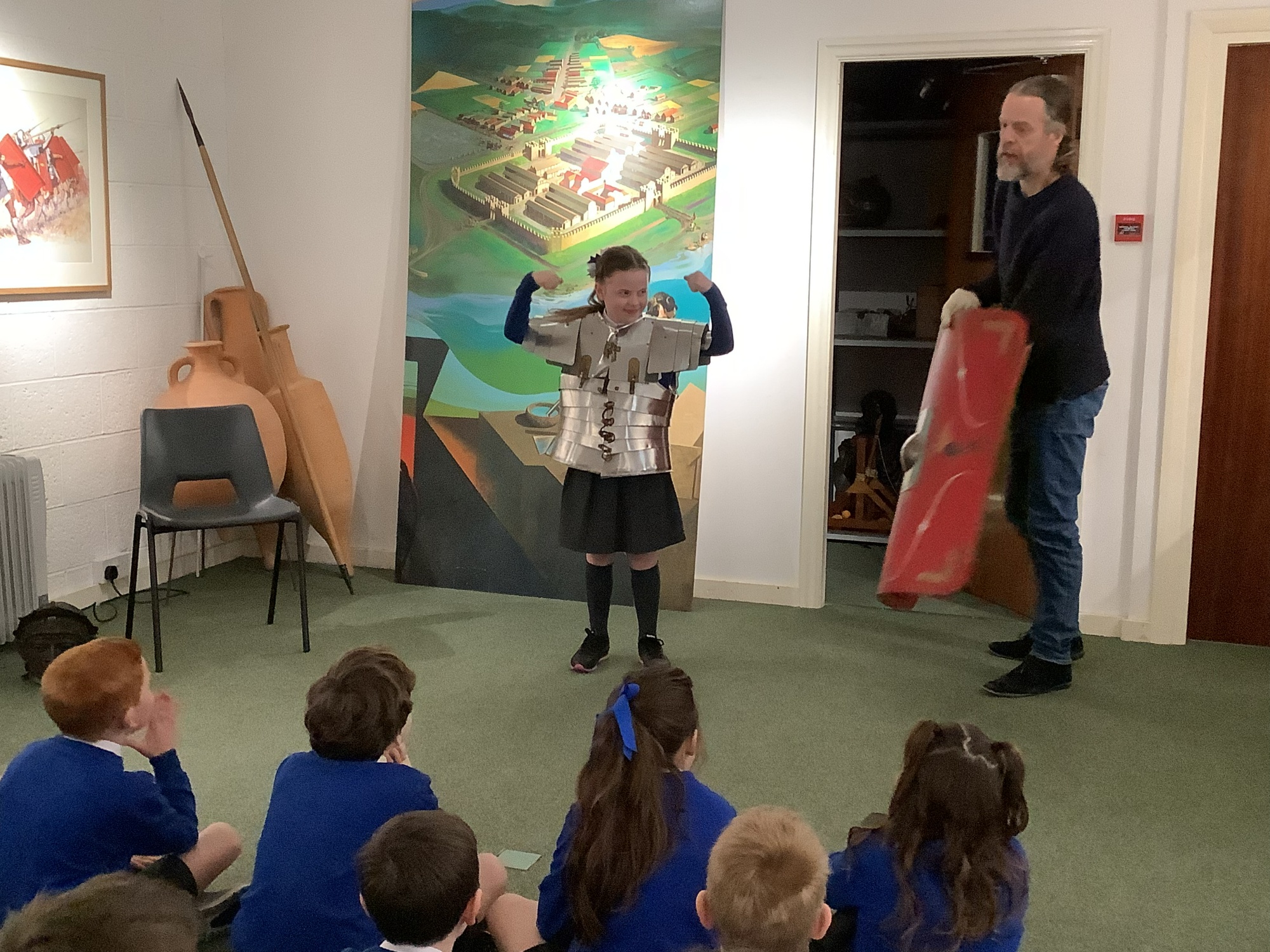
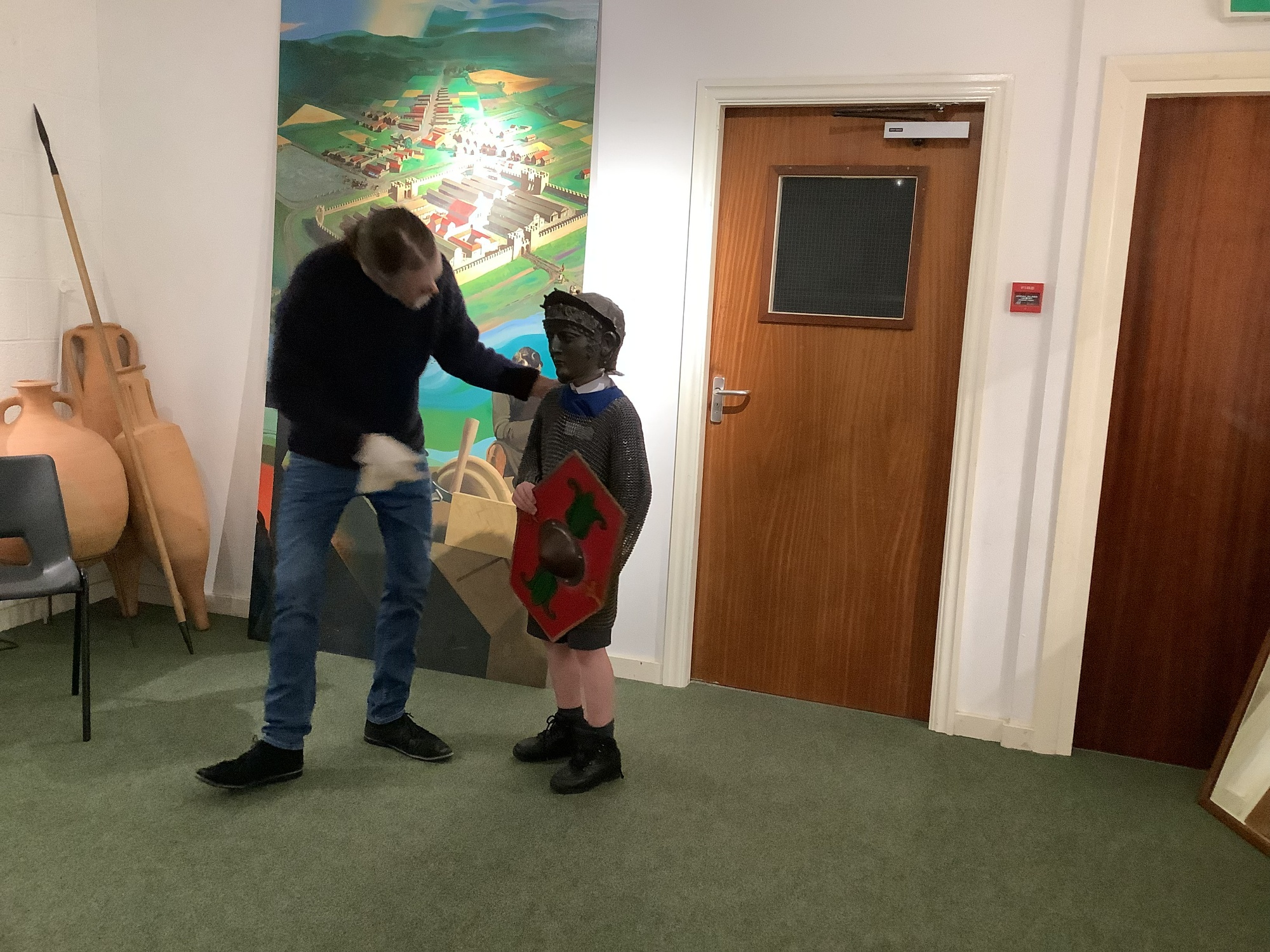
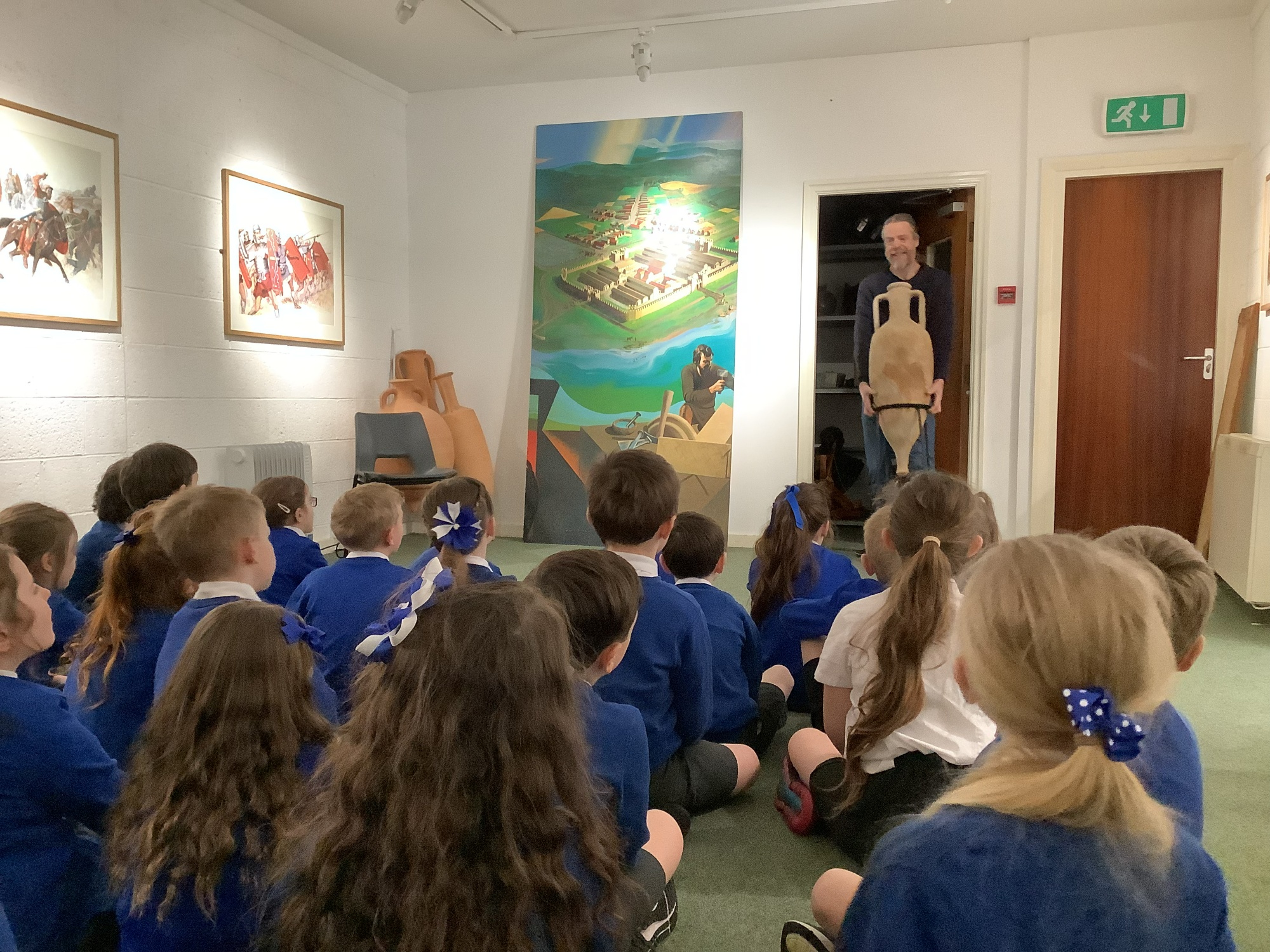
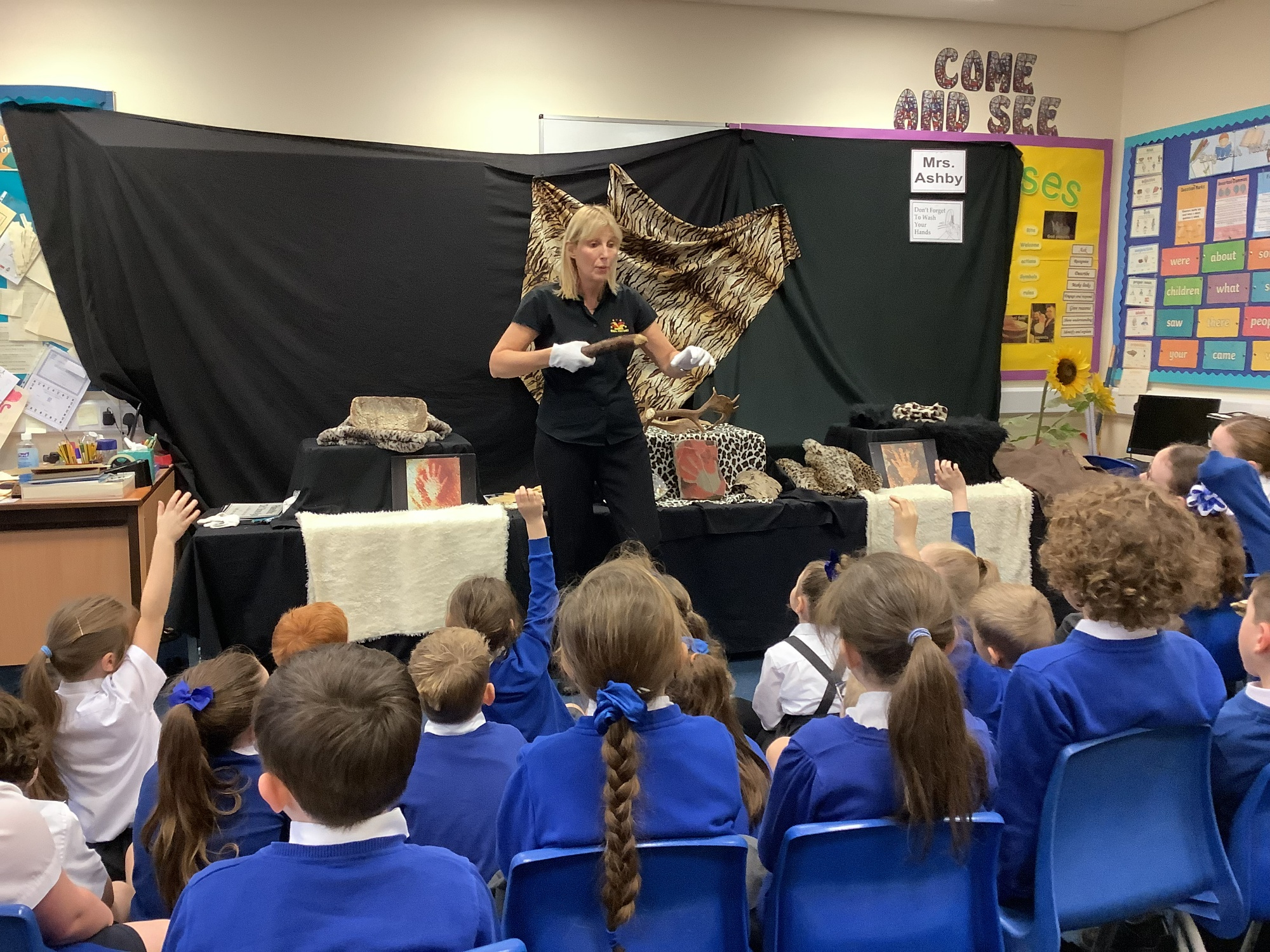
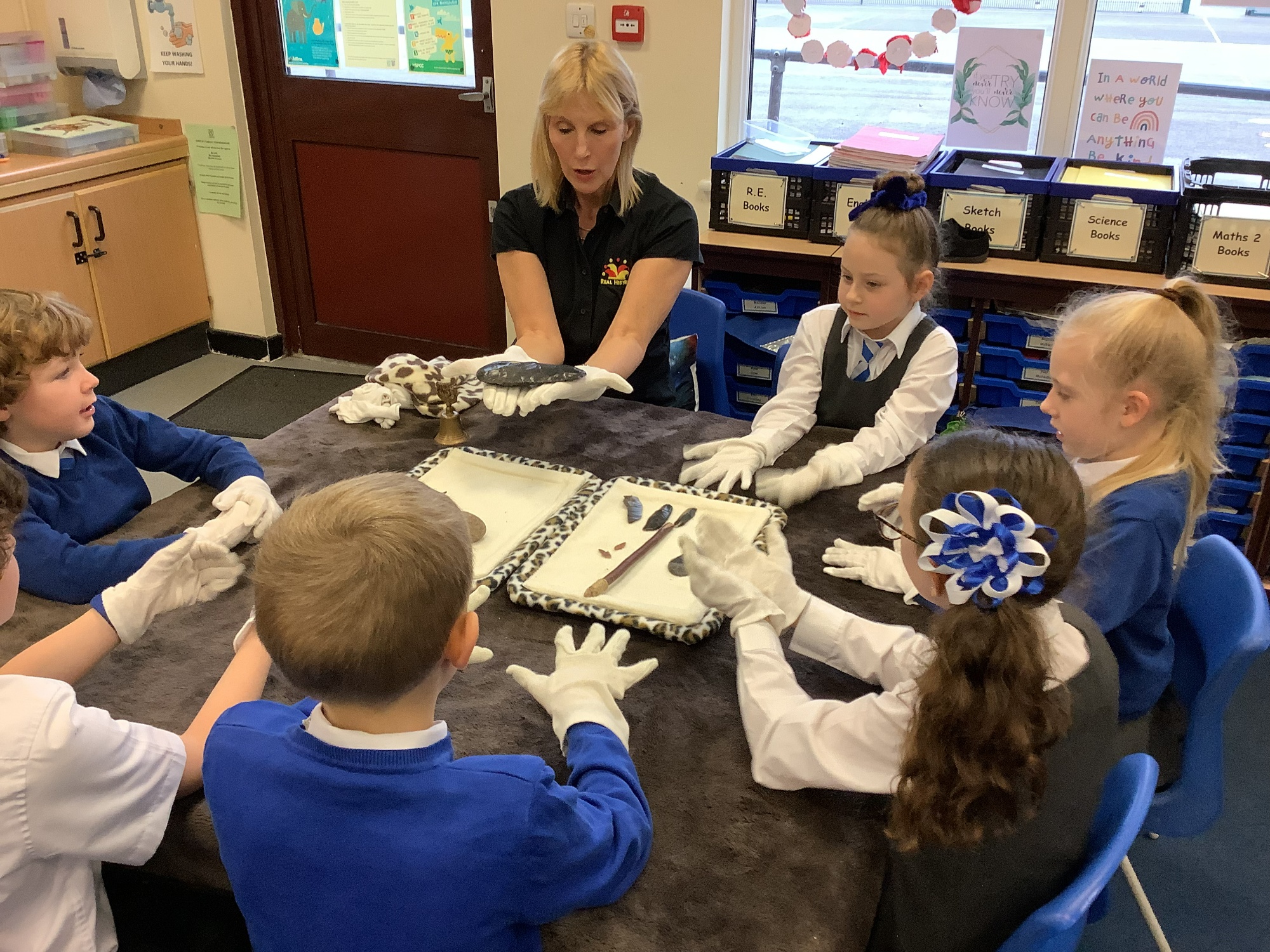
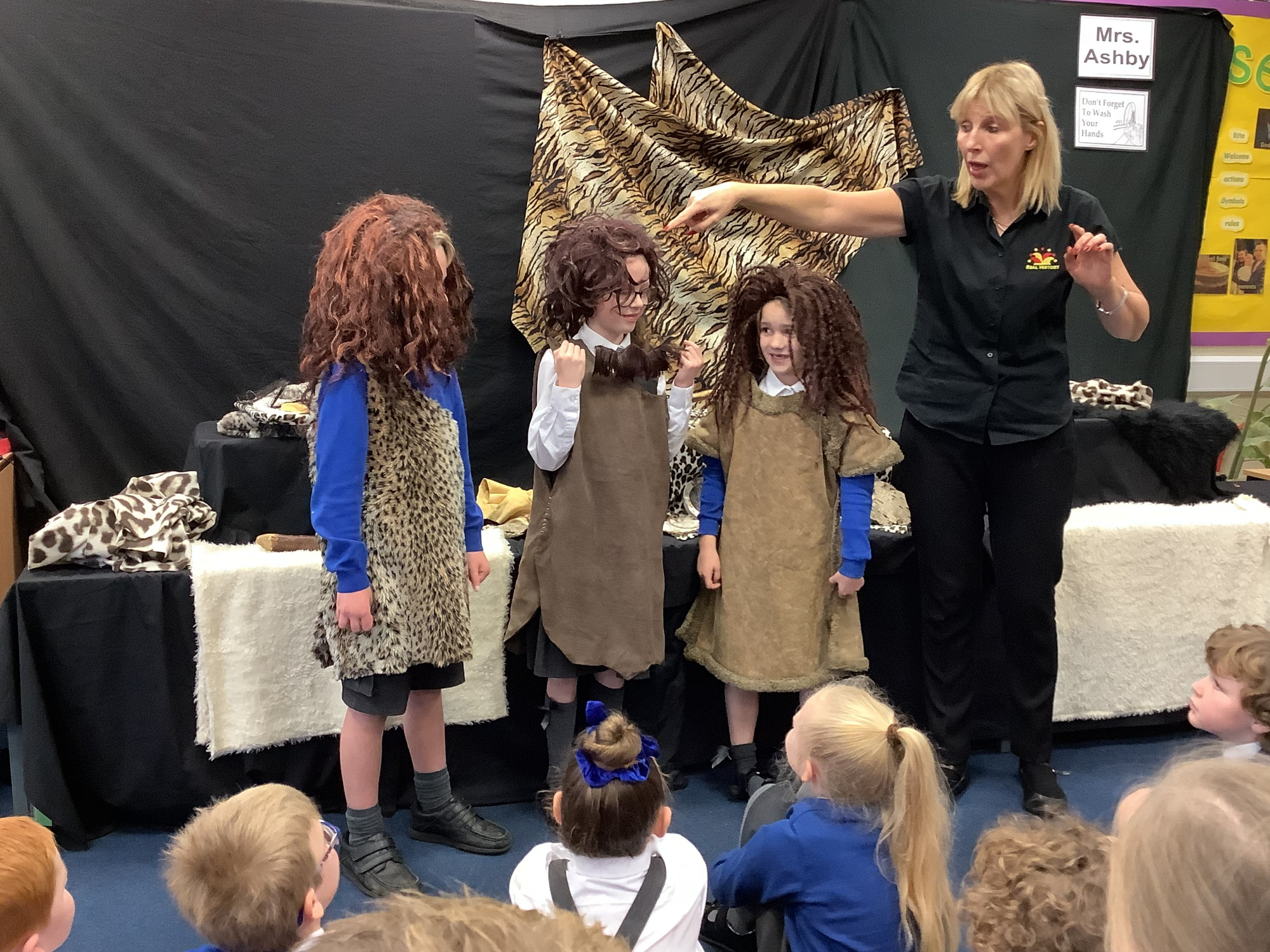
History Day
Every year we have a history day that delves deeper into the curriculum. In the summer term, junior children were tasked with crowning the greatest British Monarch of all time. Each class presented a different monarch and tried to persuade the audience that they were the most effective ruler. After a fierce battle, each child voted for who they believe was the greatest monarch, giving evidence to support their choice. It was close but KS2 children believe Queen Elizabeth II was the greatest monarch, closely followed by Queen Victoria.
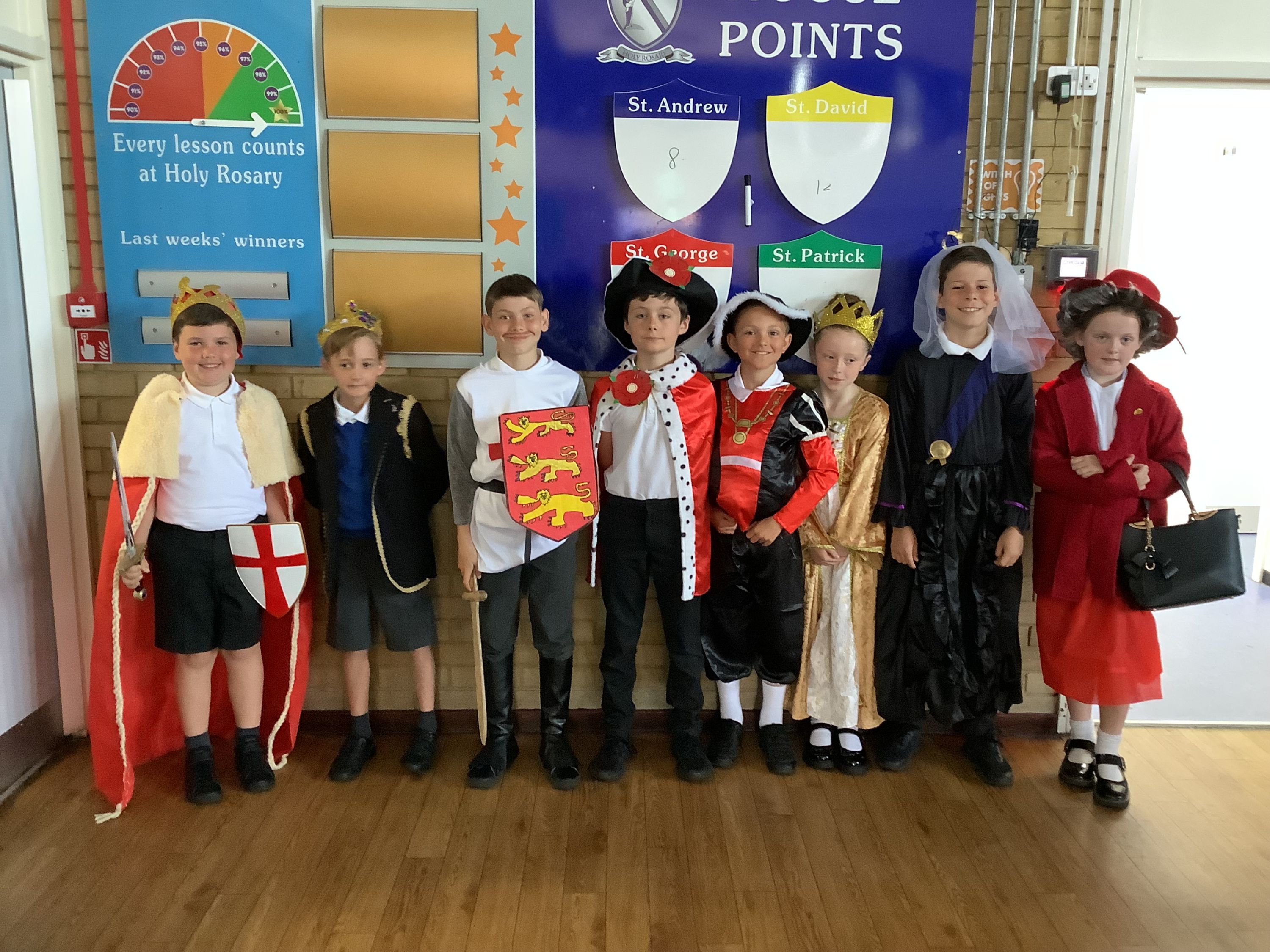
Developing History in Holy Rosary
As a school we are always striving for excellence. Because of this, we became a member of the History Association as well as other Primary History groups and communities, our history co-ordinators regularly seek CPD training to ensure they are continuing to improve history in our school and are up to date with new approaches. Co-ordinators feedback to teachers and other staff members and practice is frequently reviewed.
